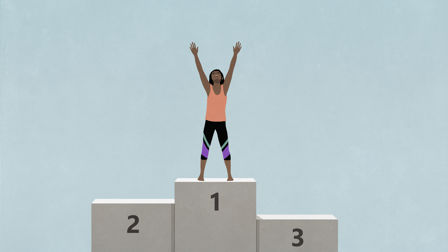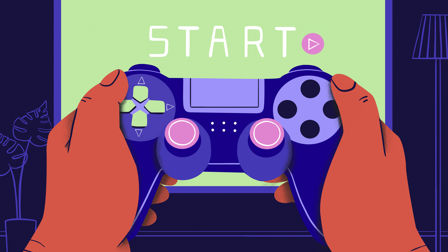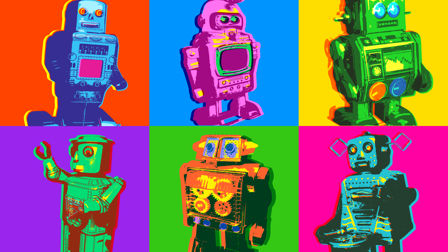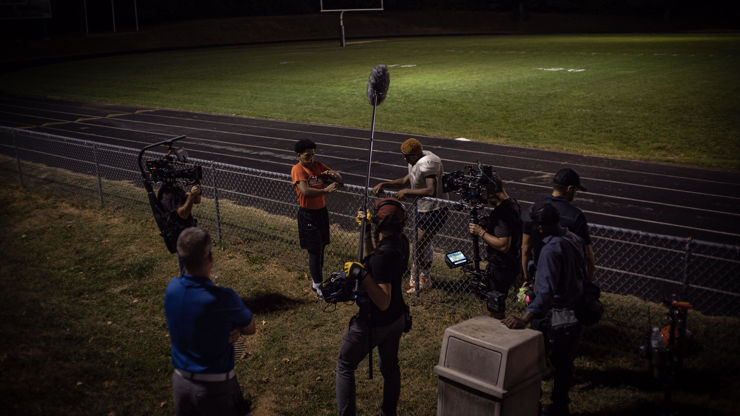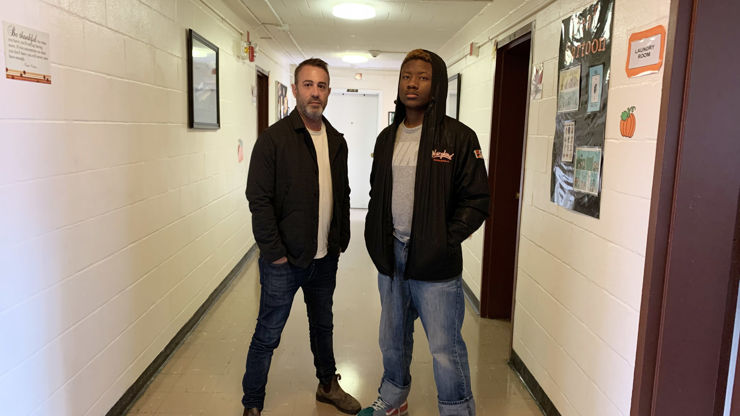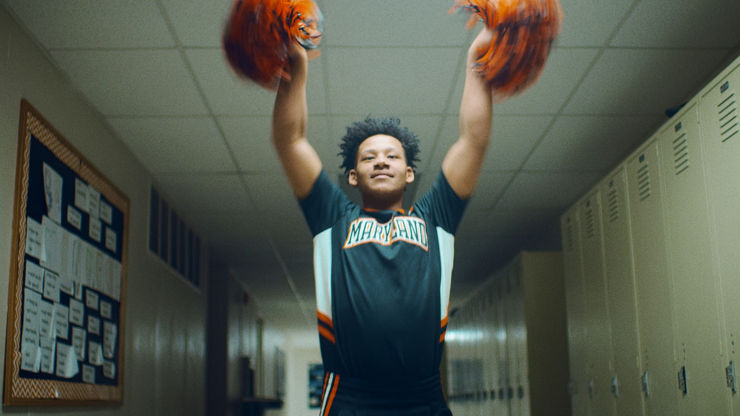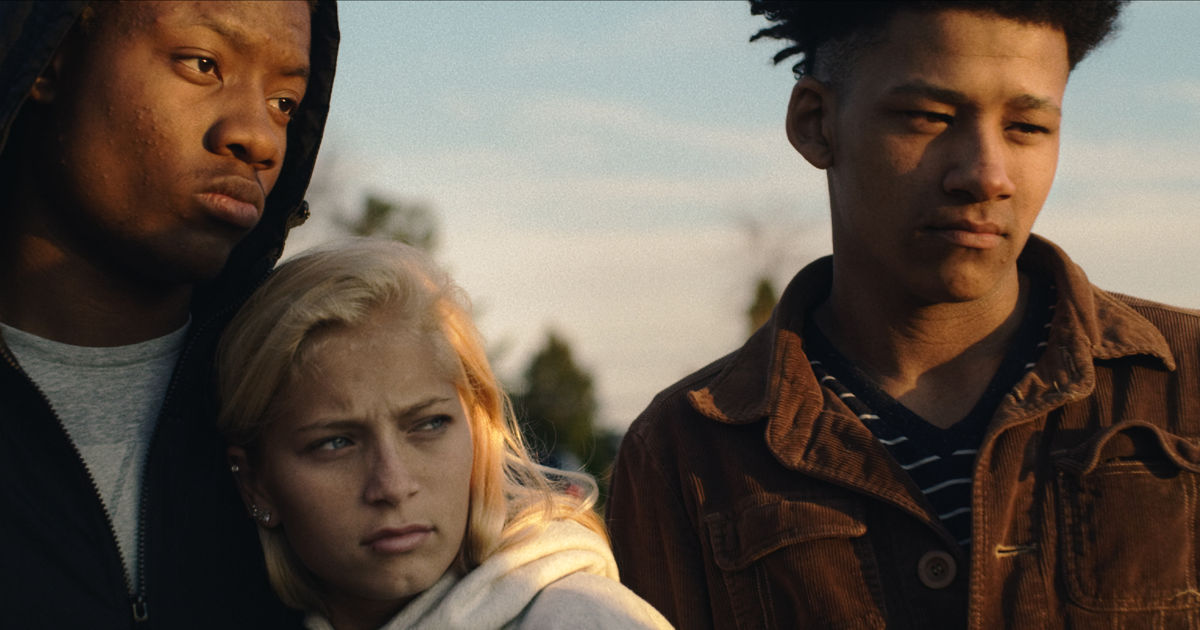When a sports commercial goes full length
In 2010, director Matt Ogens filmed a piece for Toyota at the Maryland School for the Deaf. In 2021, his 40-minute special premiered on Netflix, this time following a new deaf student-athlete and his journey into adulthood.
When Matt Ogens, (now at m ss ng p eces) first went to Maryland School for the Deaf in 2010 to shoot a commercial for Toyota, he knew that this was someplace special.
Ogens has always known about the Maryland School for the Deaf—he’s a Maryland native, growing up only 30 minutes away from campus, and his childhood best friend was deaf. Living adjacent to the deaf community meant that Ogens was always aware of the school, but what he didn’t realize was that, in addition to providing free public education to the deaf community, they also have an absolutely dominating football team.
“Everyone at this school is worthy of a story,” Ogens says, “You can always find something interesting in everyone.”
The Toyota shoot was for Line of Scrimmage, a campaign that resulted in eight commercials focusing on high school football teams of excellence throughout the country. Although the other schools were great at what they did, Ogens says that his personal connection to the school and the team kept him coming back, hoping to find the right story to make into a longer piece.
For about ten years, he says, he would go visit the school every other year or so, interviewing students, writing pitches, sending it out over and over again. “I knew I wanted to follow a senior who was going through this pivotal moment, where they were about to enter the hearing world.” This meant that every year he had to recast the documentary, find a new storyline, new characters, new ideas. “I never got a bite until I did,” he says, shrugging. This is the way it goes, after all. You only need one yes.
What came out of that one ‘yes’ is Audible, a 40-minute reflection on the journey into manhood, disability, and friendship.
“That loss [at the beginning of the film] was totally unexpected, but it really helped us with the story,” Ogens says. “Audible became a comeback film.”
He wanted to move deeper into the world of the school, beyond what was allowed in a commercial. It was all about learning and listening, talking to the students year after year, being curious. “I had to figure out how to tell the story,” he explains. “Do I follow one person? The whole team? Maybe the coach?” Funnily enough, the man who was the head coach during the Audible shooting is the same person who Ogens interviewed nearly twelve years ago for Toyota.
“Then,” he says, “I met Amaree and it all came together.” His partner in production, Nyle DiMarco (who executive produced the piece) went all-in with the pitch. “It just felt right.”
“Everyone at this school is worthy of a story,” Ogens says, “You can always find something interesting in everyone.” But Amaree’s moment, he continues, felt deep, personal, and important. It’s not a story that anyone else could have told. Amaree is a member of the offensive lineup (a center, specifically) on the football team. He’s not a star player, but a solid one, and his story revolves around his relationships. How he thinks about sports, his friends, his almost-girlfriend. It also revolves around the fact that his best friend committed suicide after transferring to a hearing school.
“There were things going on in Amaree’s life that demonstrate the larger obstacles of the deaf community, while also remaining deeply personal,” Ogens explains. “His life includes cautionary tales; there’s a drive towards acceptance, tolerance, equality, and across all of that, a coming of age in a moment of extreme change.”
“I knew I wanted to follow a senior who was going through this pivotal moment, where they were about to enter the healing world.”
When asked about sport, Ogens smiles. That’s because it’s not about football, really. The football here is a doorway into the story, but ultimately Audible is about Amaree with a football story attached. Sport, in this case, is a metaphor for the larger story; for Amaree’s life.
The football is important. Becausee they’re not just good for a deaf team. They’re just good. The Maryland School has one of the best football teams in the country, year over year, season after season, and until just a few years ago, (until the game shown at the beginning of Audible, actually), they had a 42-game winning streak.
“That loss [at the beginning of the film] was totally unexpected, but it really helped us with the story,” Ogens says. “Audible became a comeback film.”
When asked what the biggest challenge was, Ogens just laughed. Every documentary, he says, is a challenge because you don’t know what’s going to happen. You don’t know the ending, and following all the characters is like following a mystery, trying to figure out what’s important and what may not be in service to the story. “Like the loss,” he says, “bad for them, good for the story.”
“That’s what makes it scary, but also exciting.” The story had a lot of ardent supporters, including DiMarco and Netflix, who were both committed to making sure that his film portrayed Amaree’s story, and the whole school, authentically and with the proper accessibility. It was, at points, more for the deaf community than the hearing community.
Sport, in this case, is a metaphor for the larger story; for Amaree’s life.
“Nyle [DiMarco] was instrumental in making sure I got it right,” Ogens says. Within all of this is a story about a boy, loss, hope, and that underlies the football drama. Sport made it easy to connect to Amaree, no matter who you are. Sport is not only a metaphor for Amaree’s life, but everyone’s. Ogens explains that football was the hook, but, “at the end of the day, we wanted to make sure that this film is for everyone”
)




 + membership
+ membership

